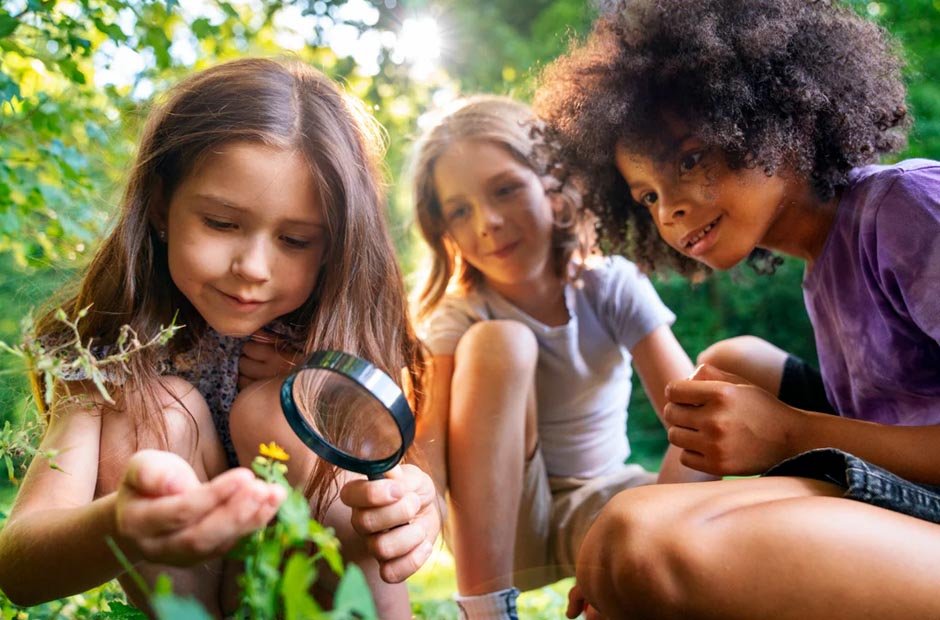Curiosity is the root of all learning, especially in toddlers, whose natural inquisitiveness about the world around them sets the stage for lifelong learning. Cultivating this curiosity is not just about providing answers; it’s about nurturing an eagerness to explore and discover. This comprehensive guide explores how parents and educators can foster this critical trait in young children, ensuring it grows from a tiny sprout into a towering tree of knowledge.
The Importance of Encouraging Curiosity in Toddlers
Toddlers are naturally equipped with an insatiable curiosity, constantly exploring their environment and asking questions about everything they encounter. This period of a child’s life is crucial as the experiences they have and the behaviors they learn can profoundly influence their future cognitive, social, and emotional development.
The Role of Early Learning Centers
To support and enrich this developmental phase, many parents turn to early learning centers that emphasize exploratory learning models. Centers such as those in early learning Chatswood are renowned for their innovative approaches to education that align with the natural learning style of toddlers—through play and discovery rather than direct instruction. These centers provide a structured yet flexible environment where curiosity is not just allowed but encouraged.
Strategies to Foster Curiosity at Home and in the Classroom
Whether at home or in a formal educational setting, there are numerous strategies that can be employed to cultivate a toddler’s curiosity. Here are some effective methods:
Create a Stimulating Environment
A stimulating environment is rich with opportunities to explore and learn. At home, this might mean setting up areas with diverse materials like blocks, crayons, puzzles, and books. In the classroom, teachers can rotate materials regularly to maintain a fresh and engaging environment.
Ask Open-Ended Questions
Instead of giving away answers, pose questions that encourage toddlers to think and explore. Questions like “What do you think will happen if…?” or “How do you think that works?” stimulate critical thinking and conversation.
Encourage Exploration and Play
Play is a powerful medium for learning and exploration. Allowing toddlers to lead their play and exploration activities can significantly enhance their curiosity and motivation to learn. Whether it’s a sandbox in the backyard or a water table in the classroom, hands-on experiences are invaluable.
The Benefits of Nurturing Curiosity
Cultivating curiosity in toddlers not only makes learning more enjoyable but also offers several long-term benefits:
Enhances Cognitive Development
Curious toddlers are likely to become keen observers and thoughtful learners. Engaging with the world in a curious way helps develop their problem-solving skills and understanding of complex concepts as they grow.
Builds Confidence and Independence
As toddlers explore and learn from their environment, they develop a sense of confidence in their abilities. This self-assurance encourages them to take on new challenges and be more independent learners.
Fosters Lifelong Learning
Curiosity instilled in early childhood creates a strong foundation for lifelong learning. Curious children are more likely to pursue new topics and skills throughout their lives with enthusiasm and resilience.
Challenges in Cultivating Curiosity
While fostering curiosity is beneficial, it can also present challenges that need to be managed effectively:
Maintaining Patience
Toddlers’ endless questions and desire to explore everything can be exhausting. It’s important for parents and educators to remain patient and responsive without stifling the child’s enthusiasm.
Providing Safe, Yet Challenging Environments
It can be difficult to strike the right balance between safety and allowing enough freedom for exploration. Ensuring the environment is both safe and challenging requires careful planning and constant supervision.
Dealing with Frustration
Toddlers often experience frustration when they cannot achieve something on their own. Teaching them to handle these emotions is crucial for their emotional development and helps maintain their curiosity without becoming discouraged.
Tips for Parents and Educators
Here are some practical tips for parents and educators to effectively cultivate curiosity in toddlers:
Read Regularly and Widely
Reading stories with children not only boosts their language skills but also opens them to new ideas and experiences. Choose a variety of books, including those that answer common questions about the world.
Use Technology Wisely
While technology should not replace physical exploration and social interaction, educational apps and videos can complement traditional learning and exploration, especially when they encourage active rather than passive engagement.
Celebrate Questions
Make it clear that questions are valued. Respond to a toddler’s inquiries with enthusiasm and interest, and take the time to explore the answers together.
Cultivating a Garden of Curiosity
In the journey of raising curious learners, every question asked and every exploration undertaken plants a seed of knowledge that can grow into profound wisdom and understanding. By embracing and nurturing these sprouts of curiosity in toddlers, parents and educators can lay down a path of continuous discovery and joy in learning that lasts a lifetime. As we foster this essential trait, we prepare our youngest learners not just for school, but for a successful and fulfilling life.








